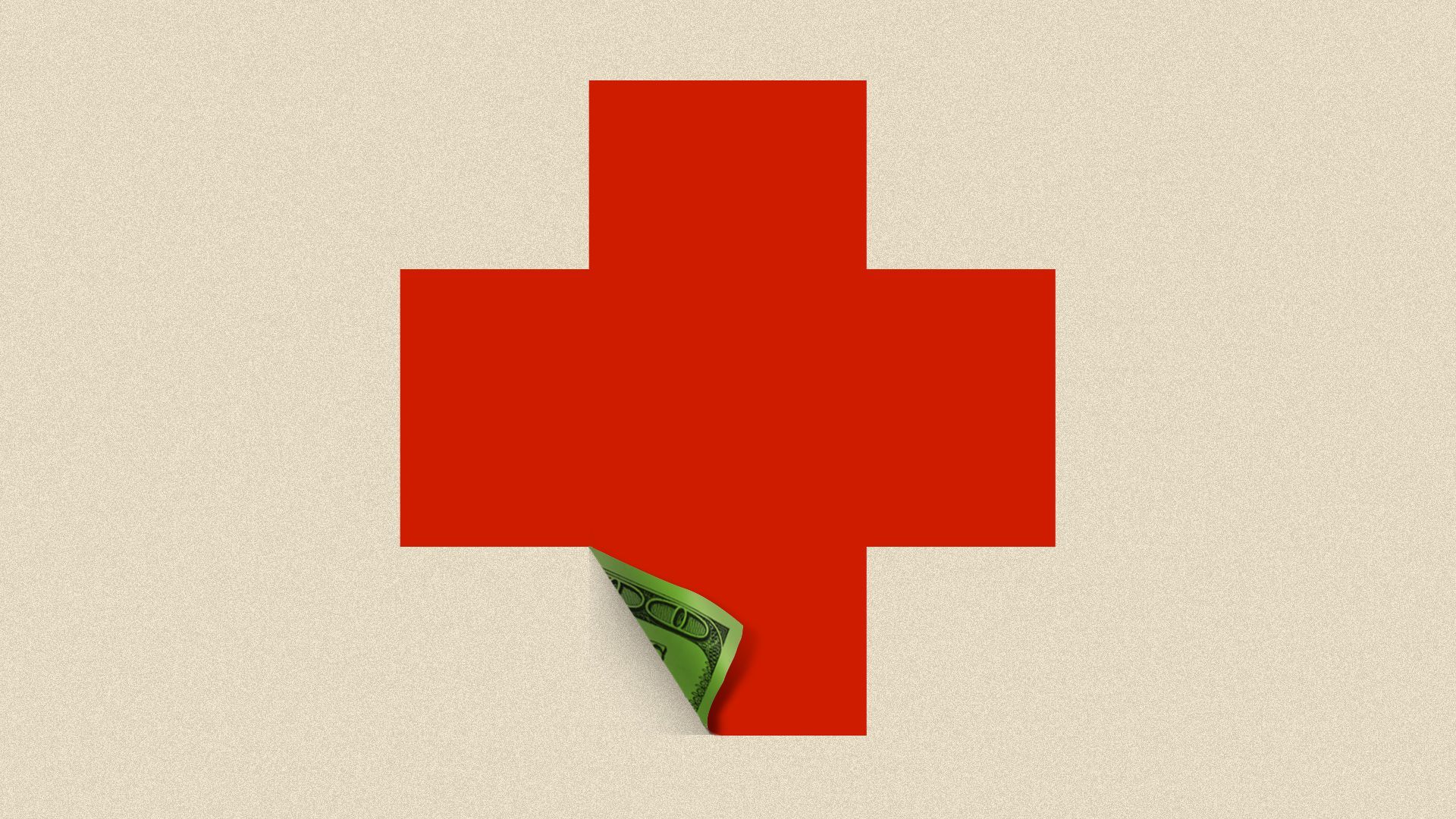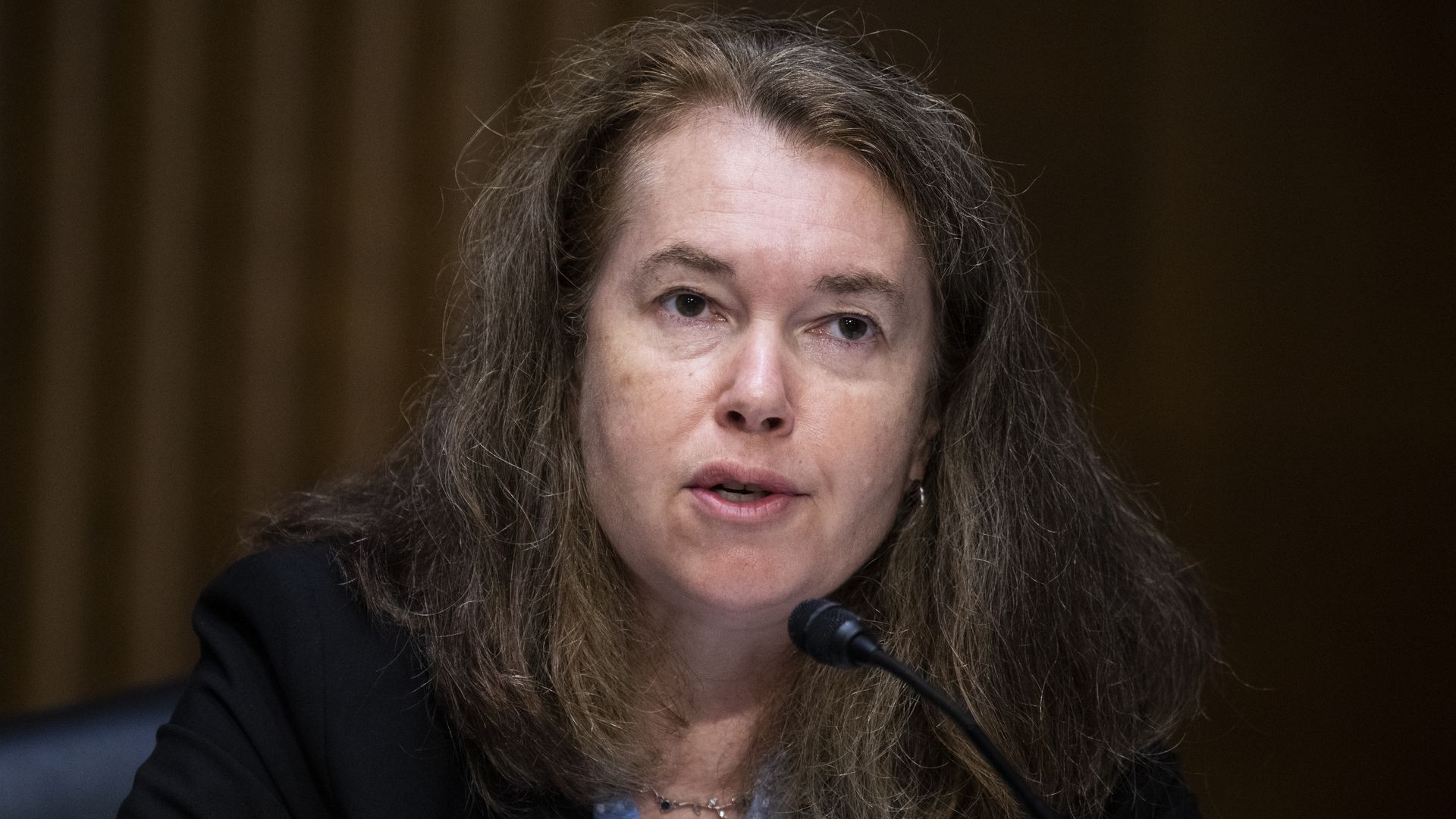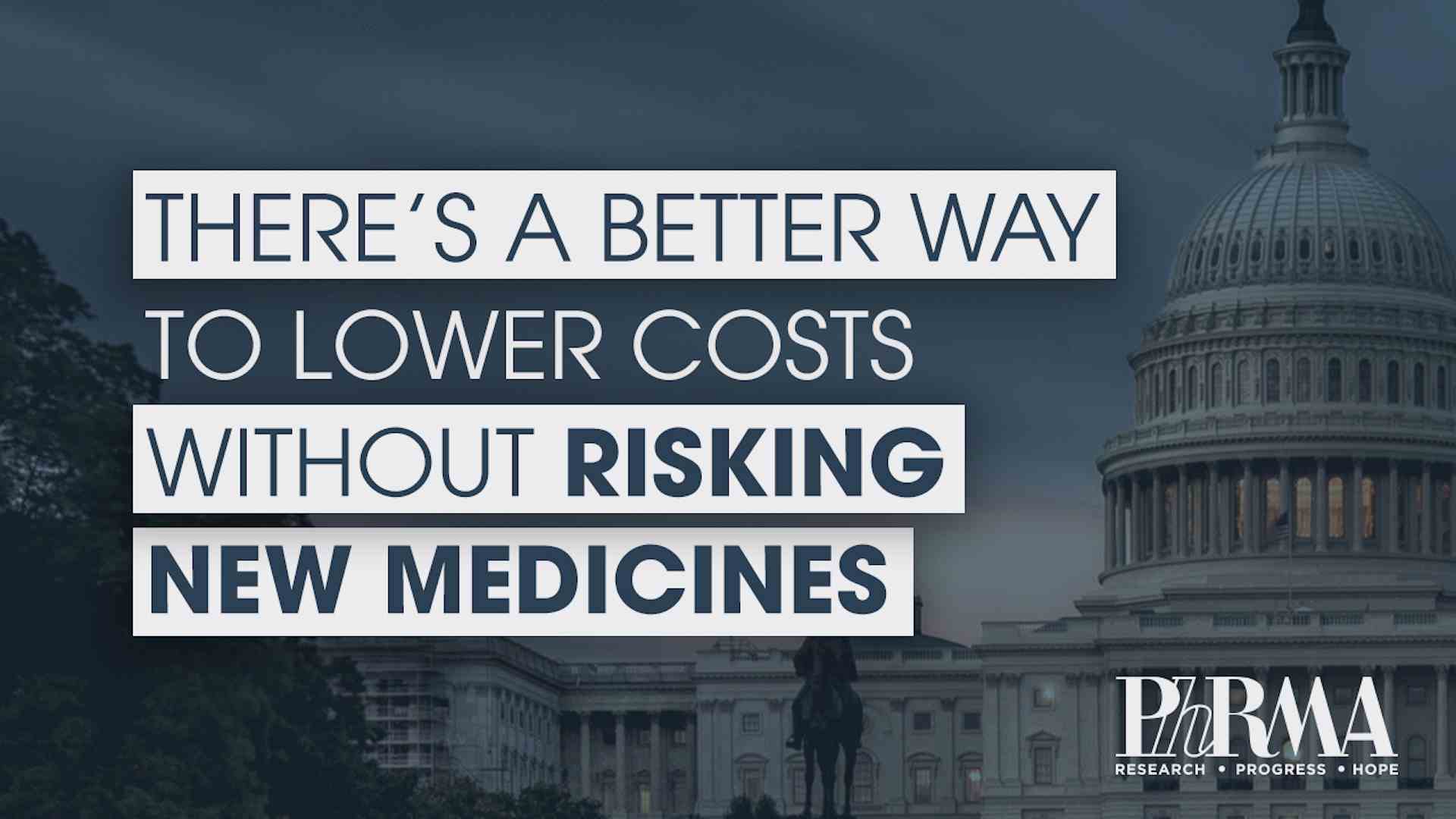| | | | | | | Presented By PhRMA | | | | Axios Vitals | | By Tina Reed · Jul 21, 2022 | | Good morning, Vitals readers. Today's newsletter is 1,003 words — a 4-minute read. 🛌 Now this is a good use of science: Bioengineers at the University of Texas say they've created a mattress that could help you sleep better, Axios' Asher Price writes. - They say it uses heating and cooling to signal to the body it's time to go to sleep, per a paper in the Journal of Sleep Research.
| | | | | | 1 big thing: Post-pandemic ACA premium hikes on the horizon |  Data: KFF; Chart: Axios Visuals; Image credit: Erin Davis/Axios Democrats' 11th-hour scramble to avoid steep Affordable Care Act premium increases for enrollees next year, glosses over the reality that premiums are going up for many people, Axios' Caitlin Owens and Arielle Dreher write. - That's thanks to the steady upward march of health care prices.
Driving the news: Most health insurers in the individual market are seeking median premium increases between 5% and 14% in 2023, according to a Kaiser Family Foundation survey of preliminary filings from 72 health plans across 13 states and D.C. - The increases have less to do with COVID-19 or federal policy changes than rising prices paid to hospitals, doctors and drug companies, and the expectation enrollees will be using more health services, KFF said.
The catch: If the Democrats succeed, most ACA enrollees won't notice the premium hikes — which preliminary filings suggest will be around 10% — thanks to the law's subsidy structure, which passes the tab along to the federal government. - But enrollees who don't qualify for federal help certainly will, and experts say the factors driving the increases are likely to show up in employer-sponsored coverage, too.
- "If Congress does not take action to extend the American Rescue Plan Act enhanced subsidies, this will be the greatest factor impacting affordability of out-of-pocket premiums for plan year 2023," said David Allen, a spokesperson for America's Health Insurance Plans.
Reality check: ACA marketplaces have been stable and profitable for insurers, even if individual market enrollees tend to be sicker than they were pre-ACA. - Insurers were largely insulated from COVID-19's toll, in large part because people delayed other care. Carriers that had to pay more medical claims raised premiums on employers and consumers.
- KFF found the pandemic will have a neutral or slight impact on health costs and premiums, mostly driven by costs associated with administering vaccines and boosters.
Go deeper. |     | | | | | | 2. 'Significant' hikes expected for employer plans |  | | | Illustration: Aïda Amer/Axios | | | | Employer-sponsored health care premiums are expected to see a larger than usual jump next year, too. Why it matters: It's the latest ballooning cost expected to be passed down to the nearly 50% of Americans who get coverage through work. State of play: There's still a lot of uncertainty around how much premiums will rise for employers compared to a typical year, when they might increase around 5% to 6%. - "Even in the fall, we were hearing concerns around 2023, with rate increases ranging from 10% to 12%. And we have a member who just had a 12% increase in their premiums," Randa Deaton, vice president of purchaser engagement for the Purchaser Business Group on Health, told Axios.
- "Our expectations are the prices are going to significantly increase," she said.
- Willis Towers Watson, a business consultancy, puts that estimate closer to between 5% and 9%.
What to watch: Whether employers will pass those costs along to their workers while a pandemic is still going on and inflation is sky high. - "There's a real high degree of scrutiny around that," Courtney Stubblefield, insights and solutions leader for health and benefits at WTW, said.
|     | | | | | | 3. HHS agency gets a pandemic promotion |  | | | Dawn O'Connell, assistant secretary for Preparedness and Response, Department of Health and Human Services. Photo: Tom Williams/CQ-Roll Call, Inc via Getty Images | | | | The Biden administration is overhauling the federal health department and elevating an emergency preparedness team into a stand-alone division to lead America's pandemic response, the Washington Post reported. Why it matters: Frustrations are high with government agencies' sluggish early response to monkeypox less than three years after facing similar problems with the novel threat of COVID-19. - There also were problems with securing contracts for rapid coronavirus tests as Omicron surged last winter, the Post reported.
- Throughout the pandemic, critics have lambasted the CDC for its siloed approach to the pandemic and a recent internal review found deep concerns about the agency's culture and responsiveness to public health threats.
Driving the news: Dawn O'Connell, the HHS Assistant Secretary for Preparedness and Response, would run the new division, to be renamed the Administration for Preparedness and Response, the Post wrote citing an internal memo. What they're saying: "This change allows ASPR to mobilize a coordinated national response more quickly and stably during future disasters and emergencies while equipping us with greater hiring and contracting capabilities," O'Connell wrote in the memo. Between the lines: ASPR and CDC were involved in a turf war over repatriating U.S. citizens from Asia early in the pandemic, and other pandemic decisions, per the Post. |     | | | | | | A message from PhRMA | | Government price setting could mean fewer new medicines | | |  | | | | Today, there are: - 90 medicines in development for Alzheimer's disease.
- 26 for childhood diabetes.
- 119 for breast cancer.
And the list goes on — but which diseases could go untreated if Congress passes government price setting? There is a better way to lower costs without risking new medicines. | | | | | | 4. What you pay for health care depends on where you live | | It turns out there are very few truly high or low-cost areas in the U.S. when it comes to health care, since there's little relationship between Medicare, Medicaid and private insurance spending trends, according to a new study in JAMA Network Open, Caitlin writes. Why it matters: The lack of uniform spending across markets in the same region underscores the complexity of the U.S. health system — as well as any attempt to lower health care costs. The big picture: There's substantial variation between all three categories of insurance, although Medicare spending is more constant. - That's likely a reflection of Medicare's regulated payment rates and the private market and Medicaid's managed care's market-driven prices.
Between the lines: To further complicate things, the study found that each market's spending variation is influenced by different factors. - Within the private market, regions with higher prices generally had higher spending. Within Medicare, regions with higher spending have more specialist physicians per capita. And within Medicaid, regions with higher spending have more hospital beds and births per capita.
The bottom line: How much you pay for health care relative to other Americans depends on where you live. This study proves how much it also depends on where you get your coverage. |     | | | | | | 5. Catch up quick | | 🏛 The DOJ charged three dozen people for health care fraud schemes across the country — including laboratory owners and company executives — for fraudulent or unnecessary claims worth $1.2 billion. (CBS News) 🍎 In a new 60-page report, Apple gave its argument about why it's a major force in health care. (Bloomberg) 📈 Venture fundraising into health care hit $15.8 billion halfway through 2022, which already translates to the third-highest year in history. (Axios) |     | | | | | | A message from PhRMA | | Patients lose when the government sets prices | | |  | | | | Government price setting cripples innovation and has potentially devastating consequences for patients. Why it's important: There are 119 medicines in development for breast cancer, but price-setting policies can change that. Tell Congress to protect access to new medicines. | | |  | | Why stop here? Let's go Pro. | | | | | | Axios thanks our partners for supporting our newsletters. If you're interested in advertising, learn more here.
Sponsorship has no influence on editorial content. Axios, 3100 Clarendon Blvd, Arlington VA 22201 | | | You received this email because you signed up for newsletters from Axios.
Change your preferences or unsubscribe here. | | | Was this email forwarded to you?
Sign up now to get Axios in your inbox. | | | | Follow Axios on social media:    | | | | | |
Post a Comment
0Comments